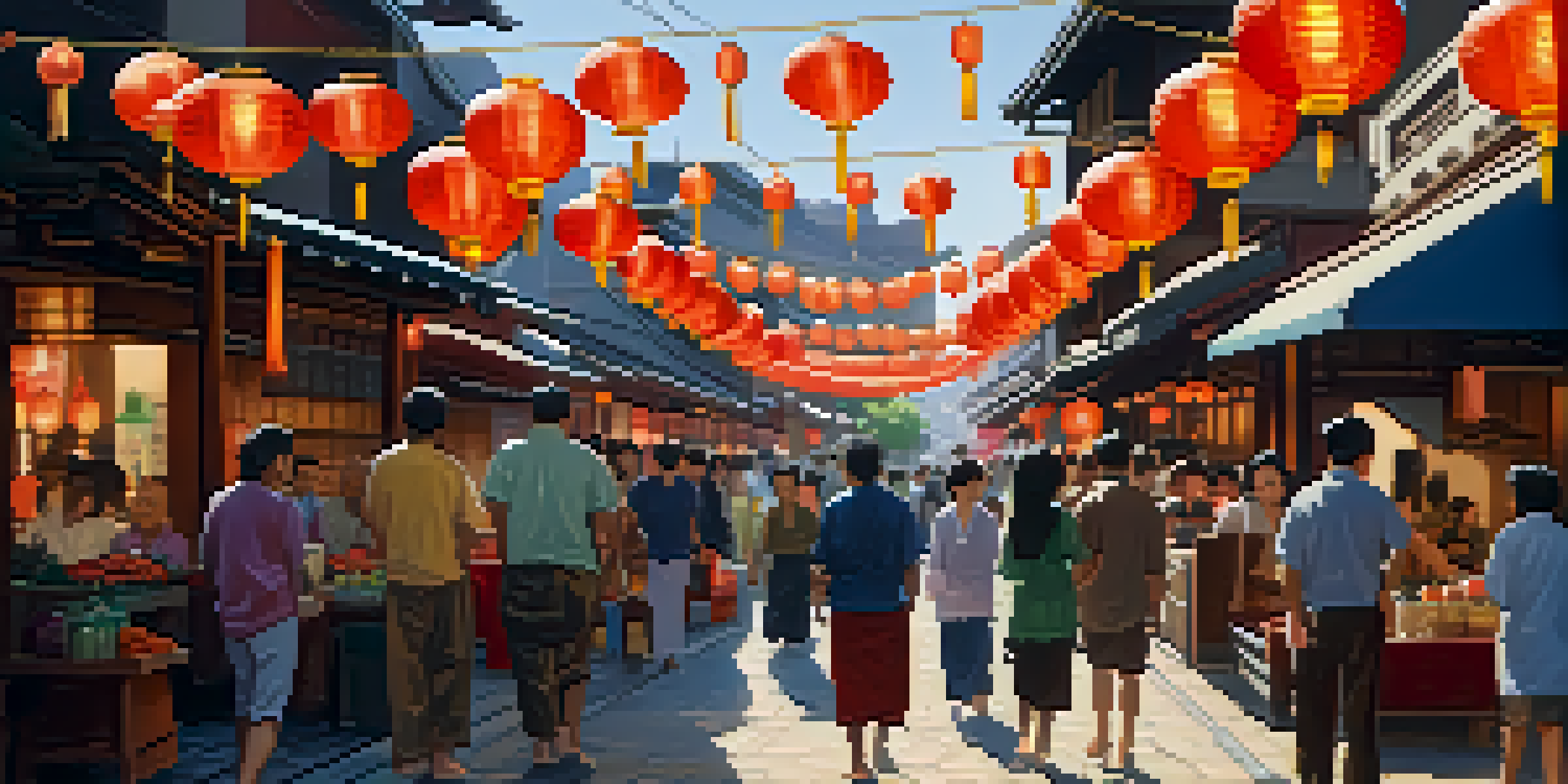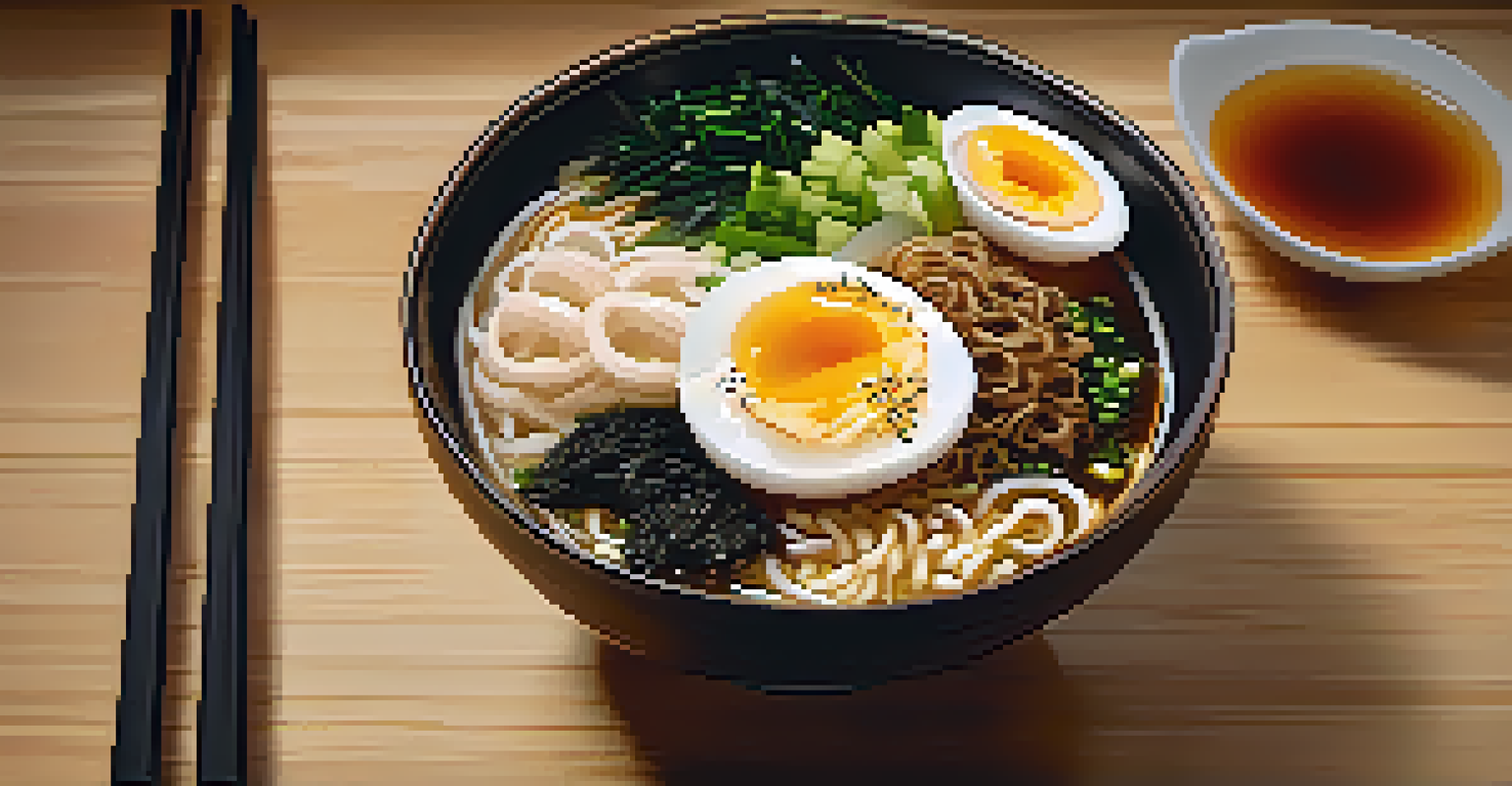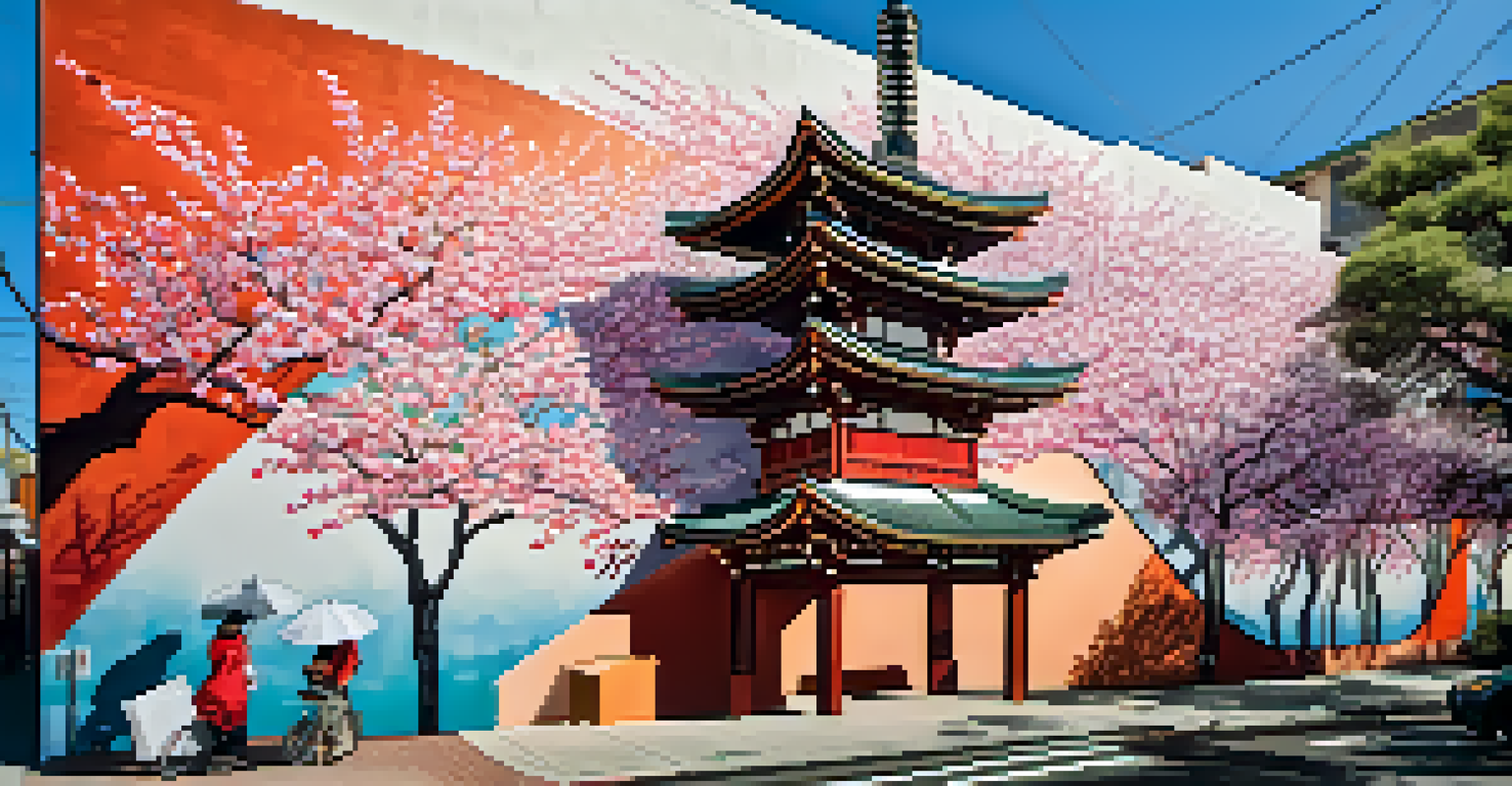The Rise of Little Tokyo: Cultural Significance in LA

The Historical Roots of Little Tokyo in Los Angeles
Little Tokyo has a rich history that dates back to the early 1900s, when Japanese immigrants began settling in the area. This vibrant neighborhood quickly became a hub for Japanese culture and community, providing a sense of belonging for newcomers. Over the decades, it has evolved while preserving its unique heritage, making it a significant landmark in Los Angeles.
Culture is the widening of the mind and of the spirit.
During World War II, Little Tokyo faced significant challenges, including the internment of Japanese Americans. Despite these hardships, the community's resilience shone through, as they rebuilt and revitalized their neighborhood post-war. This history of struggle and perseverance adds depth to the cultural significance of Little Tokyo today.
Today, Little Tokyo stands as a testament to the enduring spirit of its community. From its historic buildings to its annual festivals, the area embodies the rich traditions and stories of Japanese Americans, ensuring that the past is never forgotten.
Cultural Festivals that Celebrate Little Tokyo
Festivals are a vibrant aspect of Little Tokyo, showcasing the community's rich traditions and cultural heritage. Events like the Nisei Week Festival bring together locals and visitors alike, celebrating Japanese culture through food, art, and performances. These gatherings not only strengthen community bonds but also educate others about the significance of Japanese traditions.

Another notable event is the Tanabata Festival, which celebrates the Japanese star festival with colorful decorations and activities. Visitors can participate in writing wishes on tanzaku (small pieces of paper) and hanging them on bamboo branches, creating a beautiful visual display. Such participatory events invite everyone to engage with the culture in a meaningful way.
Little Tokyo's Rich Cultural Heritage
Little Tokyo reflects the enduring spirit of the Japanese American community, showcasing its history, traditions, and resilience through festivals and culinary experiences.
These festivals serve as a reminder of the community's resilience and the importance of cultural preservation. They provide a space for generations to connect, share stories, and foster a sense of pride in their heritage, ensuring that the legacy of Little Tokyo continues.
Culinary Delights: The Food Scene in Little Tokyo
Little Tokyo is a food lover's paradise, offering an array of culinary delights that reflect Japanese culture. From sushi bars to ramen shops, the neighborhood’s eateries serve authentic dishes that transport diners to Japan. Many restaurants are family-owned, preserving traditional recipes passed down through generations, which adds to their charm.
Preservation of one's own culture does not require contempt or disrespect for other cultures.
One of the must-try experiences is visiting the famous Daikokuya Ramen, known for its rich broth and flavorful noodles. This spot is often bustling with locals and tourists alike, creating a lively atmosphere that embodies the spirit of Little Tokyo. Food becomes a way to connect people, as sharing a meal often leads to conversations and cultural exchange.
Additionally, the presence of dessert shops like Mitsuru Cafe, famous for its mochi and taiyaki, rounds out the culinary experience. These sweet treats not only satisfy cravings but also introduce visitors to Japanese dessert culture. In Little Tokyo, food is more than just sustenance; it’s a celebration of community and heritage.
Art and Expression in Little Tokyo
Art plays a vital role in Little Tokyo, reflecting the community's identity and history. Galleries and public art installations showcase both traditional and contemporary Japanese art, emphasizing the diversity within the culture. This artistic expression allows for storytelling and connection, bridging the gap between generations.
One notable venue is the Japanese American National Museum, which offers exhibits that explore the history and experiences of Japanese Americans. Through art, photography, and interactive displays, the museum invites visitors to engage deeply with the narratives of past and present. It serves as a crucial space for education and reflection.
Modern Challenges and Gentrification
Despite its cultural significance, Little Tokyo faces challenges like gentrification and the impacts of the COVID-19 pandemic, threatening the neighborhood's identity and sustainability.
Furthermore, street art in Little Tokyo contributes to the neighborhood's dynamic atmosphere. Murals and installations often celebrate cultural icons, history, and community stories, turning the streets into an open-air gallery. This blend of art and culture fosters a sense of pride and belonging, enriching the overall experience of Little Tokyo.
The Role of Little Tokyo in Modern Los Angeles
As Los Angeles evolves, Little Tokyo continues to play a significant role in the city's cultural landscape. It serves as a reminder of the rich tapestry of communities that make up LA, showcasing the importance of diversity. The neighborhood offers a unique blend of tradition and modernity, attracting a wide range of visitors.
With the rise of interest in cultural tourism, Little Tokyo has become a destination for those seeking authentic experiences. Visitors are drawn to its historic sites, culinary offerings, and cultural events, contributing to the local economy and community pride. This influx of interest helps ensure the preservation of the neighborhood's unique character.
Moreover, Little Tokyo's development reflects broader trends in urban revitalization. Efforts to improve infrastructure while maintaining historical integrity demonstrate a commitment to honoring the past while looking towards the future. This balance is essential for keeping Little Tokyo vibrant and relevant in a rapidly changing city.
Challenges Faced by Little Tokyo Today
Despite its cultural significance, Little Tokyo faces challenges that threaten its identity and sustainability. Gentrification is a pressing issue, as rising rents and new developments can displace long-standing businesses and residents. This shift can alter the neighborhood's character, making it essential to find ways to balance growth with preservation.
Additionally, the COVID-19 pandemic posed significant challenges for local businesses, many of which struggled to survive amid lockdowns and restrictions. This crisis highlighted the vulnerability of small businesses in cultural districts, emphasizing the need for community support and resilience. Local initiatives have emerged to help businesses recover and thrive.
Future Focused on Preservation
The future of Little Tokyo is geared towards preserving its unique identity while promoting cultural education and community engagement to ensure its legacy continues.
Engaging the community in discussions about the future of Little Tokyo is crucial. By involving residents and stakeholders, strategies can be developed that honor the history and culture while addressing modern challenges. Collaborative efforts can help ensure that Little Tokyo remains a vibrant and essential part of Los Angeles for generations to come.
The Future of Little Tokyo: Hope and Renewal
The future of Little Tokyo is filled with possibilities, driven by a community that values its heritage. Ongoing preservation efforts aim to maintain the neighborhood's unique identity while welcoming new ideas and innovations. This balance is crucial for fostering an environment where culture can thrive amid change.
Initiatives that promote cultural education and appreciation are also gaining momentum. Workshops, classes, and community events allow individuals to learn about Japanese traditions firsthand, strengthening connections across generations. These opportunities not only enrich the community but also invite outsiders to engage meaningfully with the culture.

Ultimately, the resilience of Little Tokyo’s community is its greatest asset. As they navigate challenges and embrace opportunities, the neighborhood is poised for renewal and growth. With a commitment to preserving its legacy, Little Tokyo will continue to be a cultural beacon in Los Angeles, inspiring future generations.